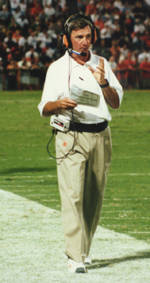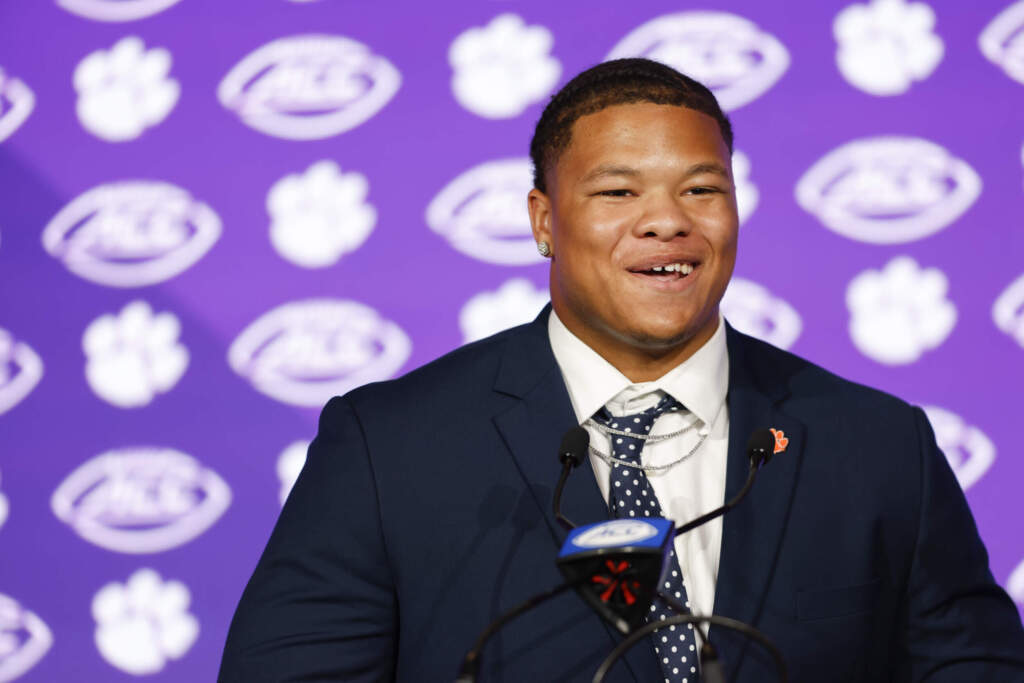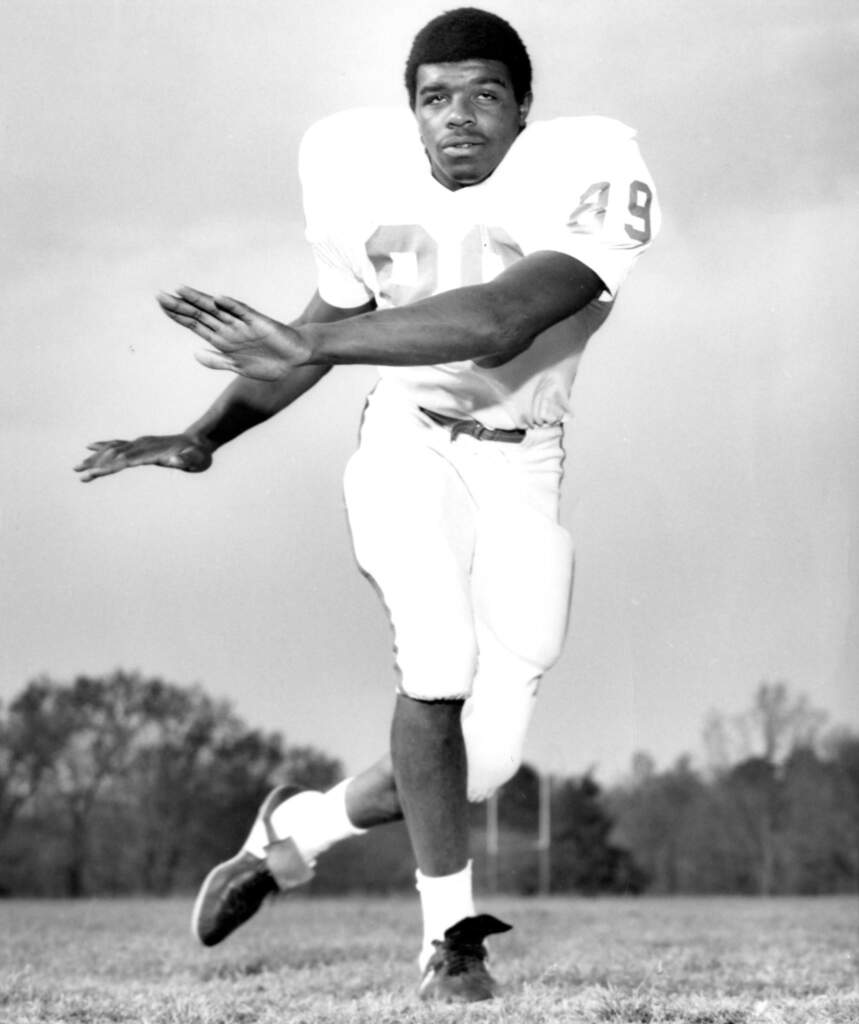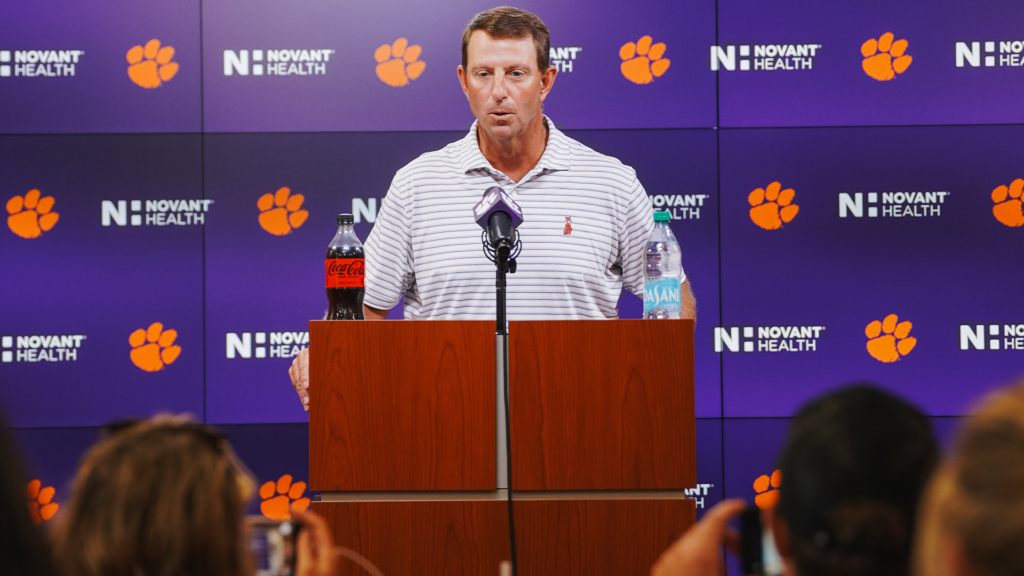Aug. 4, 2000
When Tommy Bowden approached the 1999 season, he had one simple goal for his first Clemson team – Improvement. Bowden warned Clemson supporters that the Tigers were unlikely to be bowl participants in 1999, but his main focus was to improve. Bowden’s goal of improvement was reached and he was happy to be wrong about his preseason prediction, as the Tigers were invited to the 1999 Chick-fil-A Peach Bowl.
Unfortunately, Clemson lost the bowl game 17-7 to Mississippi State, who finished the season ranked 12th in the nation, Clemson’s fourth loss to a team ranked in the top 12 of the final AP poll. That loss did not tarnish the great accomplishments the Clemson football team achieved in its first season under Bowden.
In 1999, Bowden accomplished a personal milestone that no Clemson coach had attained since 1981, the year the Tigers won the National Championship. Bowden became the first Clemson coach since Danny Ford to be named ACC Coach of the Year.
Bowden led the Tigers to a 6-6 record and 5-3 mark in the ACC against the nation’s third toughest regular season schedule according to Jeff Sagarin. The Tigers finished tied for second with Georgia Tech and Virginia in the final conference standings, a six-place improvement over the previous season, the greatest one season jump in ACC history in league play.
The Tigers also made a four-game ACC win improvement in 1999. It was just the fifth time in ACC history that a team made that big of a league victory jump. Bowden had taken over a team with a losing record and brought it to a bowl game in his first season, just the sixth coach in ACC history to accomplish that feat.
The Clemson program set or tied 38 school records in Bowden’s first year, including 26 on offense. Ironically, Bowden’s first Tulane team set or tied 26 offensive school records.
The improvements in the ACC standings were thanks in large part to an improved offensive attack. The Clemson offense ended the season averaging 402.6 yards per game, nearly a 100-yard per game improvement over 1998. The Tigers scored 26.8 points per game in 1999 compared to 19.8 in 1998. Clemson’s 42 touchdowns in 1999 ranked fifth best in school history.
Bowden’s first Clemson team averaged 67.1 more yards a game through the air than in 1998, as the Tigers passed for 3019 yards, an all-time Clemson record. Clemson quarterbacks made good on 59.6 percent of their pass attempts in 1999, third highest percentage in school history.
In 1998, Clemson ranked 103rd in the nation in turnover margin, but in 1999 the Tigers were 11th, an incredible 92-place improvement in the rankings. Clemson scored 100 points off turnovers, while opponents only scored 44 in the same statistical category.
Under Bowden, Clemson continued its strong defensive tradition. With 47 sacks , Clemson was first in the ACC in that category for the second straight season, and the final total established a Clemson record. Three players (Chad Carson – 12.0, Robert Carswell – 10.8) all had nearly 11 tackles per game in 1999 to rank among the top four tacklers in the league. Adams, a sophomore, finished the season with 186 tackles, highest in the nation, and broke the Clemson single season tackle record held by Anthony Simmons. They all contributed to the 17th best pass efficiency defense in the nation, a unit that had 19 interceptions, ninth highest in the country.
Thanks to the wide open offensive attack several Clemson players made their presence felt in the national rankings and the Clemson record book. Sophomore running back Travis Zachery had 16 touchdowns, to rank ninth in the country in scoring. He was injured in the first quarter of the Peach Bowl and did not get a chance to tie or break Lester Brown’s single season Clemson record for touchdowns.
Junior wide receiver Rod Gardner set two Clemson single season records and became the school’s first 1000-yard receiver. Gardner had 80 receptions for 1084 yards, Clemson single season records in both areas. He was 17th in the nation in receptions per game with a 6.6 mark. His yards per game average of 91.7 was 23rd best in the nation. For the first time in Clemson history two Tiger quarterbacks threw for over 1000 yards in a season. Woodrow Dantzler passed for 1506 yards, while Brandon Streeter passed for 1466 yards during the regular season. The two diametrically opposite quarterbacks had total offense games over 350 yards, a testimony to Bowden’s offensive system.
On the defensive side of the ball, Adams, a first-team All-American by Football News and the ACC Defensive Player of the Year, set the league tackle for loss record in 1999. Adams recorded 33 tackles for loss, six better than the previous mark during the regular season (Adams finished the season with 35 tackles for loss, but the ACC does not count bowl stats). He broke the school record for tackles in a game at South Carolina with 27.
Junior free safety Robert Carswell tied for first in the ACC and was 10th in the nation in interceptions with six. Senior cornerback Dextra Polite set an all-time Clemson record with 17 passes broken up. Four of Clemson’s five losses in 1999 came by four points or less and three of the five losses came against the only undefeated teams in the nation during the regular season (Marshall, Virginia Tech and Florida State).
Bowden Bowl I, the first ever meeting between father and son head coaches in college football history, took place on October 23, 1999. Bowden faced his father Bobby’s top ranked Florida State team in Death Valley in front of a national television audience. The Tigers lost a tough battle to the eventual National Champions, 17-14, the closest margin of victory for the Seminoles and the fewest point they recorded all season by two touchdowns.
Making strong improvement in his first year with a program is nothing new for Bowden. In the two seasons he was the head coach at Tulane, Bowden took a team that had been 4-18 in the two years previous to his arrival, and emotionally and numerically reversed the team’s fortunes with an 18-4 record, posted an 11-1 conference mark and finished the 1998 season ranked seventh in the nation by both polls. Tulane and Tennessee were the only undefeated teams in college football in 1998.
His Tulane team had a 22-game average of 39.7 points, 5.1 touchdowns, 463 yards of total offense, 270.5 yards passing, and 192.6 yards rushing. The Green Wave averaged 6.34 yards per play, and converted on third down 47 percent of the time.
Some say the most telling statistic in terms of wins and losses and the most telling statistic when it comes to coaching ability is turnover margin. The Green Wave ranked fifth in the nation in turnover margin each of his seasons at Tulane.
It didn’t take Bowden long to put Tulane back on the college football landscape. In his first year, Tulane was picked last in the preseason polls of Conference USA. But, he led the New Orleans based school to a 7-4 record, a second-place conference standing with just one league loss, and set 33 school records in the process, including 26 on offense.
Tulane’s accomplishments on offense were noteworthy in 1997, but their offensive charts reached uncharted areas in 1998. Tulane stood as the only school in the nation that averaged over 300 yards per game passing and 200 yards per game rushing. The team ranked fourth in the nation in total offense (507.1 per game) and second in scoring (45.4 points per game).
The Green Wave scored 40 or more points in eight contests in 1998, including each of the last seven games. In one game the Green Wave scored 72 points and rolled up 704 yards of total offense. They converted 52 percent of their third-down opportunities for the season and had just 11 turnovers in over 800 plays.
The 1998 season saw the program post a perfect 11-0 regular season under Bowden, its first prefect regular season since 1931. The Green Wave won Conference USA, its first league title since Tulane won the SEC in 1949. Bowden was named Conference USA Coach of the Year.
Bowden’s team ranked seventh in the final AP poll and was a mainstay in the polls from the third week of the season on. Tulane had not been ranked at any time since 1979 and had not been ranked in a final poll since 1973. After Bowden accepted the job at Clemson, Tulane defeated BYU in the Liberty Bowl, 41-27.
Bowden’s 11-0 record at the time was the 17th perfect regular season in college football in the decade of the 1990s.
A look to that list reveals two other coaches named Bowden. His father, Florida State Head Coach Bobby Bowden , had a perfect regular season in 1996 and 1999, while his brother, Terry, posted a perfect regular season in 1993. Obviously, the Bowdens are the first family of college coaching and this “Wonder Years” environment had a lot to do with Tommy Bowden’s decision to enter the coaching world.
The fatherly influence of a college coach who reached 300 career wins against his son in 1999, also had an influence on other members of the family. Terry has been a head coach at Samford and Auburn, posting a 47-17-1 record at the latter. Terry serves as an in-studio commentator for ABC’s college football package. Jeff Bowden is in his sixth year as wide receivers coach at Florida State.
Tommy Bowden began his college football experience as a walk-on wide receiver at West Virginia. He played for his father between 1973-74-75 and then for Frank Signetti during the 1976 season.
As a junior he caught 15 passes for 189 yards and one score. Bowden remained at West Virginia for the 1977 season and began his coaching career, serving as a graduate assistant on Signetti’s staff. His interest in coaching only became more intense after that first year as a GA. His father then hired him as a secondary coach at Florida State for the 1978 season.
That experience confirmed to Bowden that he was in a profession that would be his life’s work. The Seminoles posted a 19-4 mark in his two seasons at Florida State.
In 1980, Bowden joined the staff at East Carolina, where he coached for the Spring practice session of 1980. That spring, he moved to Auburn and served as the Tigers running backs coach for the 1980 season. Among the players he coached was James Brooks, who went on to a 13-year NFL career and is still second in Auburn history in rushing.
In 1981, Bowden returned to Tallahassee as the tight ends coach. In three more years at Florida State, the Seminoles posted a 23-12 mark and played in a pair of bowl games. The 1982 team ranked 13th in the final poll, claimed a 9-3 record and a Gator Bowl championship.
In Tommy’s five years as an assistant coach under Bobby Bowden at Florida State the Seminoles were 42-16. In 1984, Bowden accepted his first job as a coordinator. He served under Steve Sloan at Duke as the Blue Devils quarterbacks coach and offensive coordinator. It was as the Duke offensive coordinator that Bowden made his first trip to Death Valley as a coach. Among the players Bowden tutored was Anthony Dilweg, who went on to an NFL career.
After three years at Duke, Bowden became the wide receivers coach at Alabama under Bill Curry. It was at Alabama that Bowden refined his offensive coaching prowess under noted offensive mind Homer Smith, then the Alabama Offensive Coordinator.
In 1990, Bowden returned to a coordinator position, serving Kentucky as its offensive coordinator and wide receivers coach. That season he helped the Wildcats to their first upper division SEC finish since 1984.
In 1991, Bowden joined Pat Dye at Auburn. He would remain with the SEC Tigers for six years, his longest stint as a college assistant coach. During his tenure, Auburn was a combined 46-20-2, including a perfect 11-0 season in 1993. Auburn had four Associated Press top 25 seasons, including a number-four final ranking in 1993 and a number-nine final rating in 1994. The Tigers were 20-1-1 in 1993-94 combined. Bowden worked under his brother Terry Bowden for his last four years at Auburn and the Tigers had a 36-9-1 record with both Bowdens on the staff.
Born on July 10, 1954, in Birmingham, AL, Bowden is married to the former Linda Joan White, who he first met when the two were in school together at Morgantown High in West Virginia. The couple has two children, Ryan (18), a freshman at Clemson, Lauren (15) a student at Daniel High.
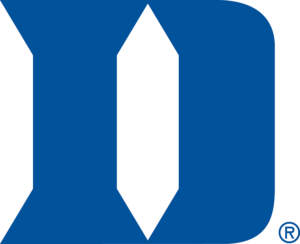 Duke
Duke 
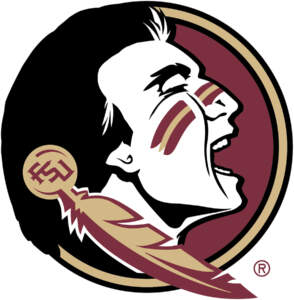 Florida State
Florida State 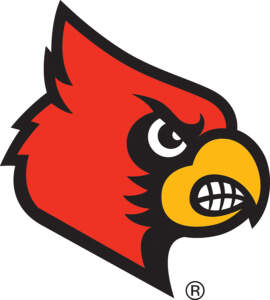 Louisville
Louisville 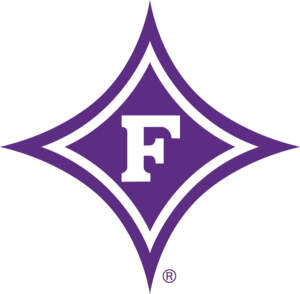 Furman
Furman 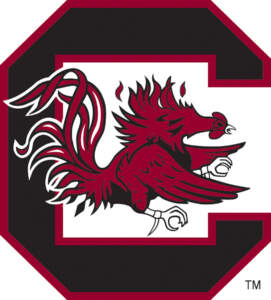 South Carolina
South Carolina  LSU
LSU 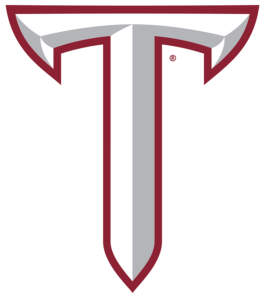 Troy
Troy 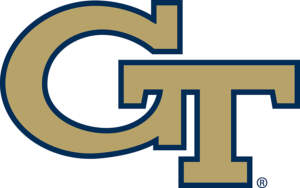 Georgia Tech
Georgia Tech 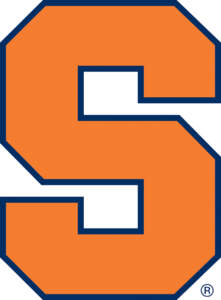 Syracuse
Syracuse 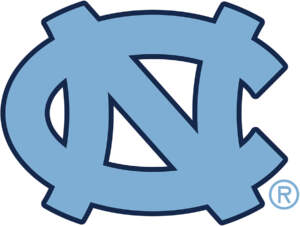 North Carolina
North Carolina  Boston College
Boston College 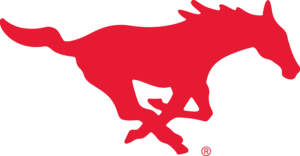 SMU
SMU 


